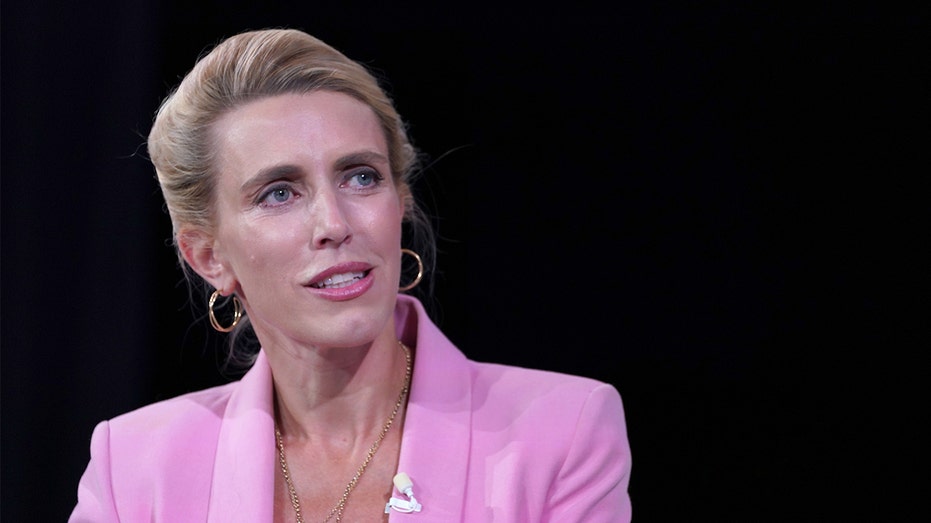
One of CNN’s most prominent correspondents shared her harrowing experience she and her crew faced after being held captive by a militia group while in war-torn Sudan.
CNN’s chief international correspondent Clarissa Ward shared the harrowing experience she and her crew experienced as they were held captive by a militia group in Darfur.
“We had come to Darfur to report on the world’s worst humanitarian crisis, never intending to become part of the story. But months of planning came apart in moments when we were detained by a militia led by the man everyone called the general,” Ward wrote Wednesday.
Ward explained how they were en route to a town in Sudan to cover the ongoing humanitarian crisis that has unfolded during the country’s civil war, something she stressed has been overshadowed in the media by Ukraine’s war with Russia and Israel’s war with Hamas.
“According to the UN, more than 10 million people have been displaced in the violence, almost a quarter of Sudan’s population. More than 26 million people — over three times the population of New York City — face acute hunger,” she told readers.
BIDEN-HARRIS ACCUSED OF ‘TOO LITTLE, TOO LATE’ TO SAVE THE PEOPLE OF WAR-TORN, FAMINE-STRICKEN SUDAN
The CNN crew was granted permission to enter the war-torn area after months of negotiations. But upon their arrival at a planned meeting point, instead of finding their host, they found the militia group.
“They had two Toyota Land Cruiser pickup trucks, weighed down with rocket propelled grenades and heavy machine guns,” Ward wrote. “Our driver was led off in chains to the town jail. For three hours we were interrogated, one by one, in a small, windowless room. About eight men asked the questions. ‘Why are you here?’ ‘Who sent you here?’ ‘Who gave you permission to be here?’ We answered their questions but got no information in return: who these men were or what they wanted with us.”
WORLD FORGETS ‘CATASTROPHIC’ WAR IN SUDAN AS RUSSIA, IRAN, OTHERS REPORTEDLY FEED FIGHTING WITH ARMS
The militants then ordered Ward’s crew and their driver to follow them on a dirt road.
“It was at this point that the general suddenly stopped his vehicle and started shouting at us, before shooting his gun. The goal, presumably, to scare us. It worked,” Ward said.
SUDANESE PARAMILITARY CARRIES OUT ETHNIC CLEANSING IN DARFUR, RIGHTS GROUP SAYS
After they pulled over again, Ward attempted to plead directly to the general to let them go.
“‘Please, we are very frightened,’ I told them in halting Arabic. ‘I am a mother. I have three little boys.’ The general looked disinterested, but I could see the security chief’s face soften. ‘Don’t be frightened, don’t be frightened,’ he assured me, ‘We are human beings,’” Ward recalled. “For the next 48 hours, we were held under armed guard by the general, the security chief and roughly a dozen soldiers, some who looked no older than 14. Our detention was spent out in the open, underneath acacia trees. As the only woman, and with no private space to relieve myself, I limited my water and food intake. Sleep, when it came, was a mercy, a reprieve from the clawing sense of panic at not knowing when I would be able to see my children again.”
After being away for several hours, the general and the security chief returned to deliver good news to the CNN crew.
“It has been decided you will be released tomorrow,’ they told us. ‘We thought you were spies but now you can go home,’” Ward wrote. “A wave of relief crashed through my body. There were smiles and handshakes with our captors. We posed awkwardly for a photograph at the edge of the mat that had been our makeshift prison.”
“Our ordeal was over. We were unharmed and soon to return home. The fear and worry quickly replaced by a feeling of bitter disappointment, of failure. We never made it to Tawila. Never managed to talk to the people in Darfur whose lives have been chewed up by this vicious civil war. Untold stories that the world may never hear,” she added.


